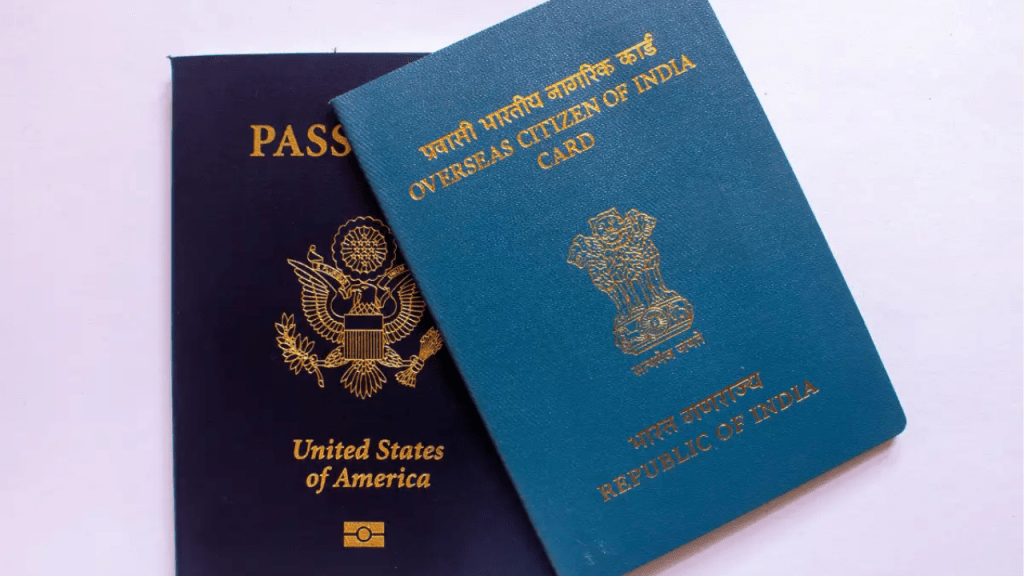The concept of dual citizenship has long intrigued and frustrated many Non-Resident Indians (NRIs). With growing global migration and the vast Indian diaspora settled across continents, the issue of maintaining legal and emotional ties with India is more relevant than ever. Currently, India does not permit dual citizenship, but legislative conversations and proposals suggest change might be on the horizon.
In this blog, we break down the dual citizenship rules for NRIs in India, examine legal distinctions, the role of the OCI card, and explore what the future could hold if new laws are enacted.
In this Article
1. India’s Current Legal Position: No Dual Citizenship
India’s legal framework does not support dual citizenship. Under Article 9 of the Constitution, Indians who acquire citizenship of another country must:
- Surrender their Indian passport
- Renounce Indian citizenship
- Give up rights like voting and holding public office
This stance often creates identity dilemmas for NRIs who want to stay connected to India legally and culturally.
Check Out: NRI Inheritance: What Properties Can NRIs Inherit?
2. Dual Citizenship Bill: A Legislative Turning Point
Congress MP Shashi Tharoor has proposed an amendment to Article 9 that would allow foreign citizens of Indian origin to hold dual citizenship. If passed, this bill could:
- Enable NRIs to reconnect with India politically and economically
- Facilitate easier business, travel, and cultural integration
- Potentially benefit millions of people with Indian roots abroad
Though still in its early stages, the bill signals a progressive step in Indian immigration policy.
3. OCI Card: A Practical Alternative
India introduced the Overseas Citizen of India (OCI) card in 2006 as a middle-ground solution. While it doesn’t grant full citizenship, it offers many privileges:
- Unlimited stay in India
- Ability to work and own property (except agricultural land)
- Access to Indian markets and financial services
However, OCI holders cannot vote, hold government positions, or apply for Indian passports.
Must Read: NRE vs NRO Account: The Ultimate Guide for NRIs to Choose Smartly
4. NRI vs. OCI: What’s the Difference?
Understanding the difference between NRI and OCI status is critical for legal clarity:
| Feature | NRI (Non-Resident Indian) | OCI (Overseas Citizen of India) |
|---|---|---|
| Citizenship Status | Indian citizen living abroad | Foreign citizen of Indian origin |
| Voting Rights | Yes | No |
| Stay in India | Up to 182 days/year (for tax reasons) | Unlimited |
| Indian Passport | Yes | No |
NRIs retain their Indian citizenship but face restrictions based on residency and taxation laws, unlike OCIs who enjoy long-term residency rights without full citizenship.
5. Legal and Taxation Rules for NRIs
NRIs are governed by Indian laws such as:
Income Tax Act
- Taxed on income earned in India
- Rental income and capital gains are taxable
- Global income is taxed only if they qualify as Indian residents
FEMA (Foreign Exchange Management Act)
- Defines NRI status based on duration and purpose of stay abroad
- Regulates foreign investments, remittances, and banking transactions
Aadhar Act
- NRIs are exempt from mandatory Aadhar unless they qualify as residents
6. Investment & Banking Rights for NRIs
NRIs are allowed to hold the following types of accounts under FEMA:
- NRE (Non-Resident External) Account: Repatriable and tax-free
- NRO (Non-Resident Ordinary) Account: For income earned in India, taxable
- FCNR (Foreign Currency Non-Resident) Account: Fixed deposits in foreign currency
Check Out: Best Gilt Funds for NRIs to Invest in 2025: A Strategic Guide for Safe & Stable Returns
Investment Restrictions:
- Cannot invest in Public Provident Fund (PPF) or Post Office schemes
- May face limits on small savings schemes and direct government investments
7. Property Ownership Rules for NRIs
NRIs can purchase:
- Residential properties
- Commercial properties
They cannot buy:
- Agricultural land
- Farmhouses
- Plantations
All transactions must be in Indian Rupees and conducted through NRO accounts. Additionally, rental income from properties in India is taxable under Indian law.
A Changing Landscape for Global Indians
While dual citizenship rules for NRIs in India currently disallow holding two passports, emerging legislative proposals hint at a more inclusive future. The introduction of the dual citizenship bill could significantly reshape India’s relationship with its global citizens.
Until such changes are enacted, NRIs must continue to rely on OCI status and adhere to current financial, legal, and property regulations. Staying informed and compliant ensures they can maintain strong ties with their homeland without risking legal complications.
Stay Connected with Verified Resources
For trusted updates and support, visit Indian.Community – your guide to legal rights, expert NRI services, and diaspora news. Explore our directory of Trusted & Verified businesses for help with taxation, property, and OCI documentation.
